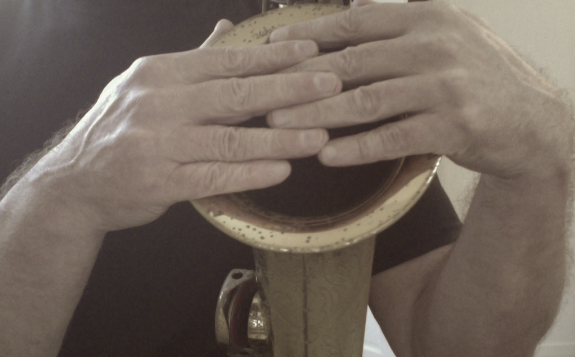
One of the things I’ve learned in my daily saxophone practice is to welcome the adversity of unwanted results to my practice efforts.
Whereas before this would lead to frustration (and even despair), now it brings me to a place of quiet curiosity, discernment and experimentation.
To be clear, I very much enjoy the days where everything seems to be going just right. Not only does it gives me the satisfactory sense of being in a state of “flow” with my efforts, but it also affirms that I’m on the right track with my practice strategies and intentions.
But when it’s “one of those days” where even the simplest things start to unravel, I immediately transition into my “why?” mode:
“Why is this always an easy thing for me, but today it is not?”
The answer to this question is always available, as long as I continue to explore and ask further questions.
Whenever things are not going as well as they normally do, it will always come down to one thing: the quality of my attention moment to moment as I practice.
Sometimes this quality of attention issue is more “global” in nature. For example, maybe I’m severely lacking in sleep, or perhaps distracted by some emotional trauma I’ve experienced earlier in the day.
In either of these cases, I practice self-kindness, and determine whether there is a way I can regroup and redirect my efforts in a constructive way to continue; or if I can’t, to simply stop the session and use the remainder of my allotted practice time to give myself more of what I really need (like a nap, or some quiet, compassion-based meditation).
But more often than not, my quality of attention issues are immediately changeable. So if something seems unusually difficult for me that day, I simply observe my thinking, and ask myself questions:
“Where/how am I placing my attention?”
“Am I hyper-aware of what I’m doing, (never a good thing), or am I simply not integrating my awareness as intentionally as I normally do?”
“How is my attention impacting my ‘use’? (the quality of what I’m doing in my body and with my senses)
“Am I focusing too much on the expected result, at the expense of not paying enough attention the quality of my process as I pursue the result?”
“Am I using awareness to discern what I’m actually doing with myself as I practice this particular thing, or am I self-consciously judging the quality of my efforts before I can arrive at that discernment?”
And so on. (One of the most valuable skills gained from studying the Alexander Technique is in learning to constructively apply these “attentional” skills.)
I just keep asking questions, going from the general to the more specific (for example, “How am I perceiving pulse/rhythm today?”), until the answer reveals itself to me. I always find the answer, as long as I stay curious and keep asking.
There are two big benefits from bringing this attitude and commitment into my daily practice:
One, in learning that I can find improvement in even the most difficult of days, I develop a continuing, empowering sense of self-efficacy.
Two, my daily practice sessions tend to be more consistent and productive than ever before.
It’s a win/win situation.
I think it was basketball legend Michael Jordan who said something like:
I never lose. Either I win, or I learn something.
And so it can be in your daily practice sessions. So enjoy the good days, those days where you feel unstoppable in your musical skills and powers. Let them affirm, inspire and energize you.
But I encourage you to also welcome the “bad” days. Because if you are willing to examine and readjust the direction and quality of your attention as you practice, there really are no “bad” days.